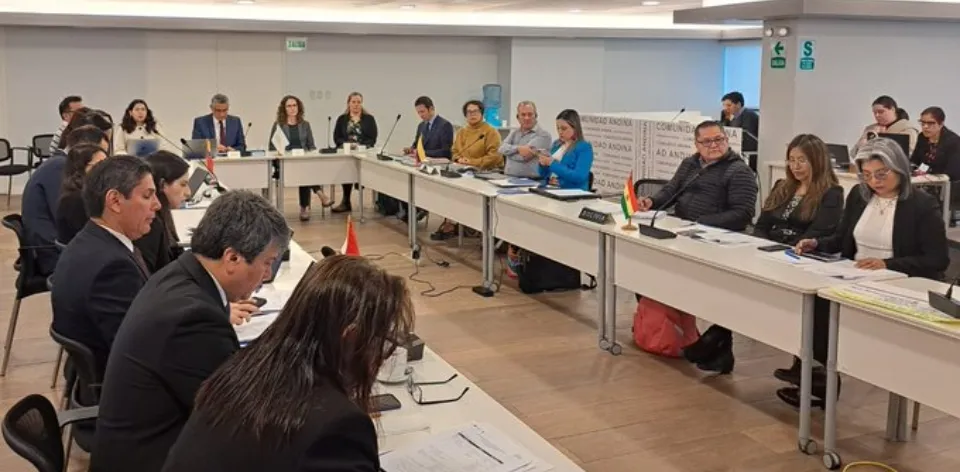 17/9/2024
17/9/2024
UPRA Participates in the Andean Regional Dialogue on Sustainable Agriculture in Lima

Bogotá D. C., (@Minagricultura, @UPRAColombia, @dorairey). On September 5th and 6th, Lima hosted the Andean Regional Dialogue on Sustainable Agriculture and Deforestation-Free Products. The event, organized by the General Secretariat of the Andean Community in partnership with the German Cooperation Agency (GIZ), saw participation from the Ministry of Commerce (MinComercio), the Ministry of Agriculture and Rural Development (MinAgricultura), and the Rural Agricultural Planning Unit (UPRA).
The focus of the event was on analyzing ways to strengthen legal and deforestation-free trade from Andean countries (Ecuador, Peru, Bolivia, and Colombia) to the European Union. It also addressed regional challenges and opportunities related to the trade of key products like cacao, coffee, and palm oil, including discussions on the national agricultural frontier to meet these challenges.
In his opening remarks, Alberto Lora, Director General of Trade at the General Secretariat of the Andean Community, thanked the German cooperation for its support in facilitating this exchange of experiences aimed at enhancing production, accelerating competitiveness, and boosting international trade in the agri-food system of the Andean region. He noted: "Exports of agro-industrial products from Andean countries to the world between 2019 and 2023 contributed, on average, 20.8% of total exports, demonstrating that agro-industrial exports are a significant source of income and employment for Bolivia, Colombia, Ecuador, and Peru."
Adriana Pérez, UPRA's Technical Advisor, highlighted the event's significance: "In this space, we were able to showcase the progress UPRA has made in defining the national agricultural frontier and the advancements in traceability efforts aligned with the European Union's due diligence requirements on deforestation and protected areas."
Why is the Regional Dialogue on Sustainable Agriculture Important?
The Andean Community member countries (Peru, Ecuador, Bolivia, and Colombia) are major producers and exporters of coffee, cacao, palm oil, and timber products to the European Union. This dialogue is crucial for sharing experiences and strategies to meet the new requirements of the European Union Deforestation Regulation (EUDR) and ensure continued access to international markets. The challenges discussed include strengthening public information systems and promoting deforestation-free production that aligns with national climate change commitments while protecting societal and environmental rights. Colombia has already made significant progress by updating its agricultural frontier and conducting internal analyses on implementing the EUDR.
The event was attended by high-level representatives and officials from the Ministries of Agriculture, Commerce, and Environment of the four Andean Community countries, as well as international experts.
During the regional dialogue, participants jointly explored the challenges and opportunities posed by the new regulations on deforestation-related trade in the Andean region and their environmental impact. Commitments were also made to develop a clear policy on agricultural traceability.

